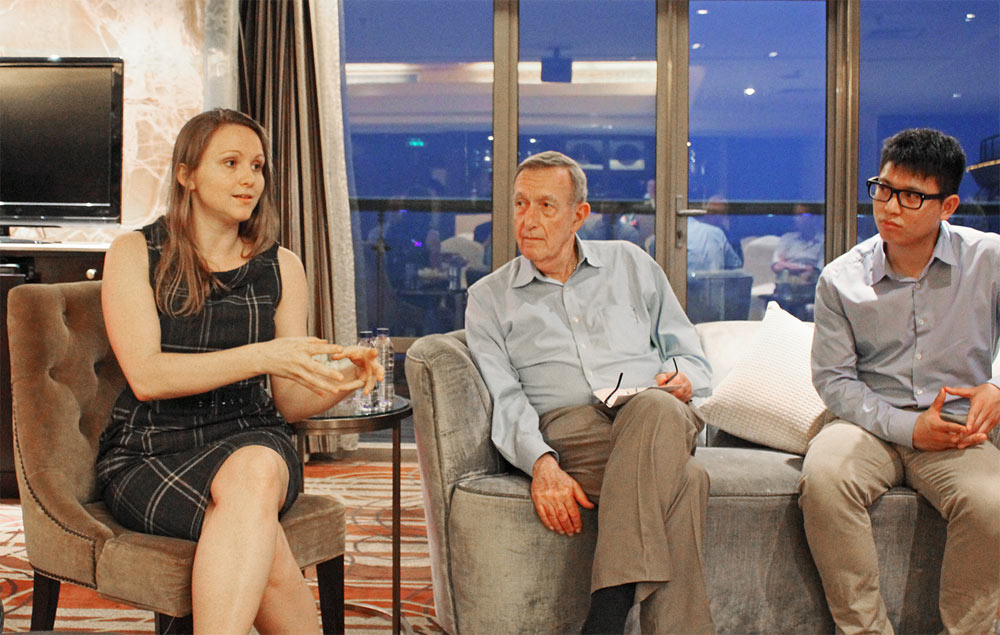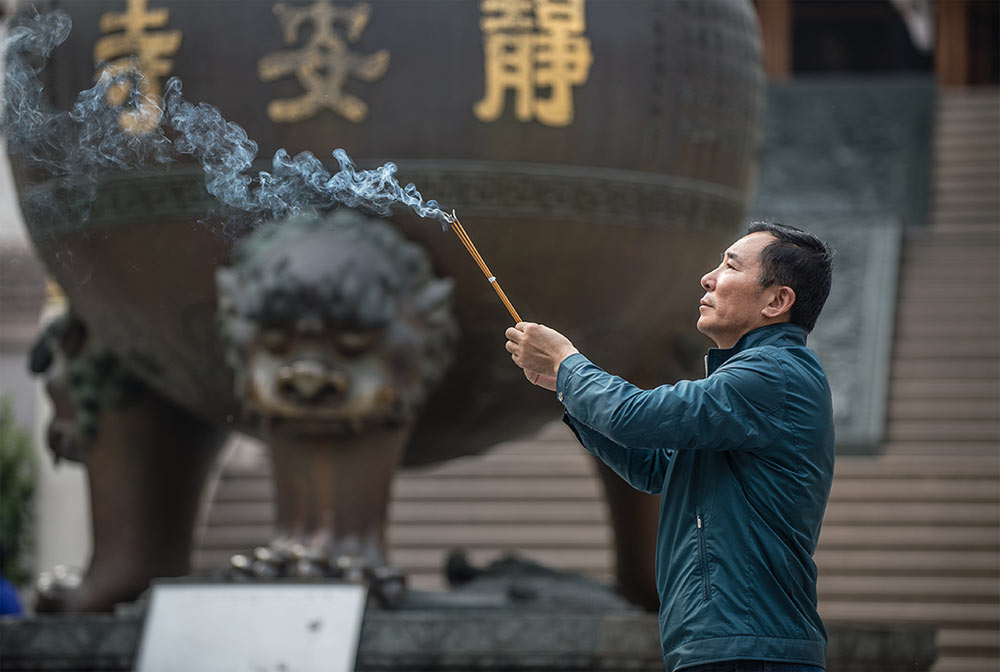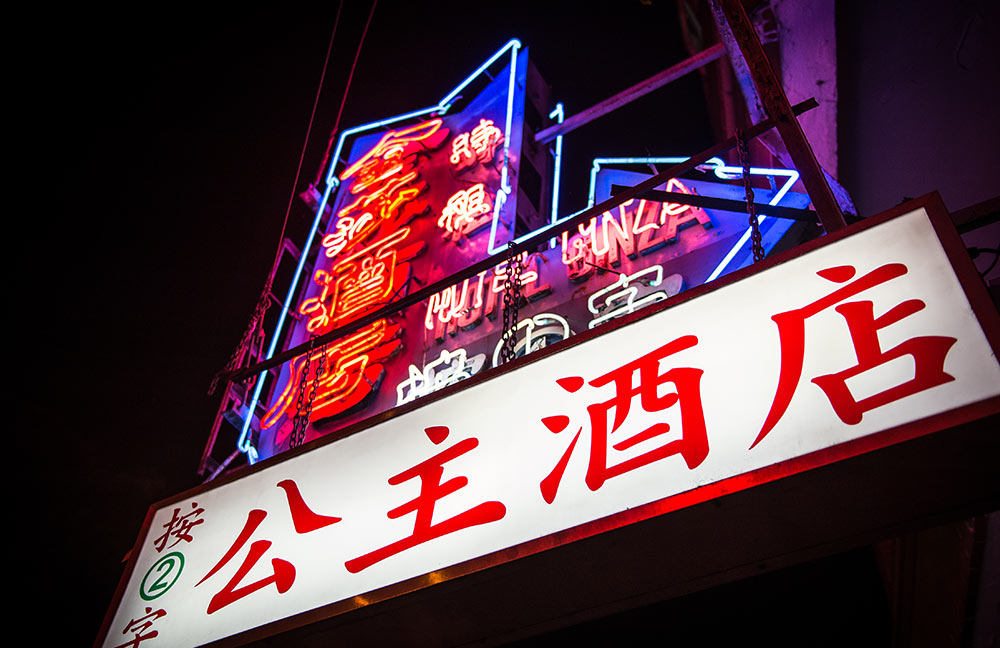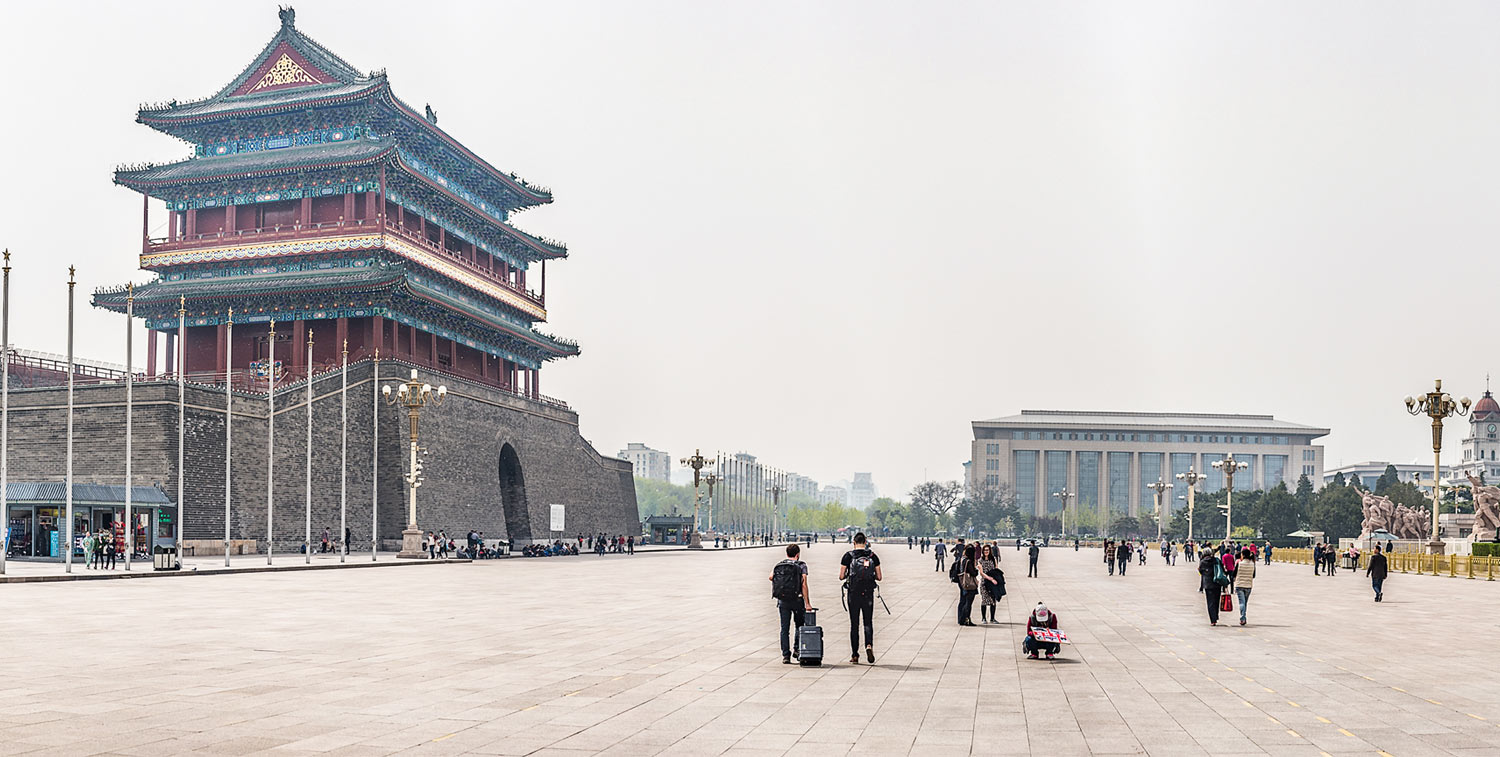How to Be Successful Living and Working in China
China is a country that presents the greatest challenge for international work assignments, according to Brookfield Global Relocation Services.
Two Kelley alumni shared their perspectives on how to prepare for a global assignment in the world’s most populous country.
Kirsten Olson is a 2014 Full-Time MBA graduate and the operations director of the Sino-US Diabetes Center in Hangzhou City, Zhejiang, China. In her position, Olson works on the frontlines of China’s diabetes epidemic—the country now has the highest prevalence of the disease in the world.

Forrest Didier, MBA’79, is the CEO of Apsara Ventures LLC and Partner Beijing Linden Consulting Company. Didier spent eight years in Asia running businesses across the region—six years in Hong Kong and two years in Sydney, Australia. At Apsara, he delivers venture success through angel financing, strategy development, partnerships, strategic alliances and targeted exit strategies. He is focused on the Asia and China market potential for media/digital media, entertainment, internet, online advertising, online market research, gaming and mobile industries.
What attracted you to China?
Didier: I’ve always loved to travel. As a kid, I visited 49 states by car. My first trip to Asia was in 1993, and Hong Kong was still under Britain’s control. It was very difficult to get into China back then, but you could sense it was going to be the future. It presented tremendous opportunities.
Olson: I love China and Chinese culture. My current position does not so much fit a career goal as it fits a life goal. In college, I decided to study Chinese. The more I studied the language, the more interested I became in China.
What do you find most challenging about working in China? What do you find the most rewarding?
Olson: When I think of the challenges to working in China, they fall into two broad areas: working and living.
Under the “working” category, you have to shift your paradigm to be successful in China. What we consider common sense in the West is not, in fact, that common around the world. Things we take for granted, such as assuming our employees will ask a question if they don’t understand, are not socially encouraged in China. One of the things I have to train my colleagues and employees in every job I’ve had in China is that if they don’t understand, or if I have not provided them enough resources, it is their job to tell me. One of the biggest challenges for Western managers with Chinese employees is that the Western manager does not know this is a cultural difference. If he or she gives an unreasonable assignment, the employee will not say “I need more time than one week,” or “I’m going to need more help to get this done on time.” The manager needs to ask questions to make sure that the employee understands and has sufficient resources. When employees fail to deliver on time, often I hear foreign managers say their employees are incompetent—I’m not always so sure it is the employee’s fault.
In the “living” category, there are the usual challenges to living in another culture. I don’t mind differences like food or language. The hardest challenge to living in China being a person of non-Asian decent is the overwhelming curiosity I receive in smaller cities. They do not often see foreigners and will outright stare at me everywhere I go. Often I am interrupted—sometimes courteously, sometimes not so courteously—for photos, or to be asked on a date. I always wonder how sincere a man is if he asks me to be his girlfriend when he doesn’t bother to ask my name!
Didier: The most challenging thing for me as a manager of a large team of people was the cultural differences. The Chinese people grew up afraid to challenge authority and question the status quo and were reluctant to share their thoughts as to how to improve the business for fear of insulting the boss. It took a while to gain their respect and get them to open up with their ideas. You need to ensure you communicate well, encourage people to share their thoughts and create a reward system to recognize people for new ideas in order to develop that culture.
The most rewarding was also the cultural differences—being open to different ways of doing things, different foods, different habits, new sights and experiences. Embracing the culture wherever you are is incredibly eye-opening and immensely rewarding.

How does working in China fit with your overall career goals?
Didier: I always had international business as a career goal. When I was in the MBA program at Indiana University, I told my roommate I was going into international business, even before there was a dedicated curriculum for it. I pursued international companies and opportunities and when I had the chance to relocate to Hong Kong and run businesses across the region, including major businesses in China, I jumped at the opportunity. China is already the second-largest economy in the world and it will forever be an important global player. For those who know how to conduct business there and how to identify and seize opportunities in China, career options will be numerous and exciting.
Olson: Career-wise, I realize that I have a value-add proposition to employers and clients in China that I do not have in the United States. I am an American who speaks Mandarin and has a better-than-usual understanding of Chinese culture and business customs. This is a quality that makes me more valuable working in China than back home.
How were you able to make the adjustment to a new culture while hitting the ground running in your job?
Olson: I was already adjusted to China. I lived in China for three years before returning to the United States for my MBA at Kelley. Even when I first moved to China, I had studied abroad during undergrad and studied Chinese language and history. More than that, my parents took me traveling all over Central and South America when I was growing up, so adjusting to a foreign culture is rather easy for me.
That said, the hardest part was adjusting to the jetlag. I arrived on Sunday evening and started work on Monday morning!
Didier: I lived in Hong Kong for six years, starting shortly after the handover of Hong Kong to China. Due to the long history of British rule it was a lot easier landing assignments in Hong Kong than mainland China. However, I also had to immediately start spending significant time in mainland China and was immediately thrown into senior level negotiations with the Chinese government. Making the adjustments to the new culture was something you had to do on the fly—learn quickly, listen instead of talk, observe protocol and prepare as much as possible in advance by talking to colleagues and associates who have been there awhile—and for senior level discussions make sure to engage senior level consultants and/or legal advisors who can help guide the process, interpret hidden meanings and translate subtleties effectively.
What advice do you offer for adjusting to living and working in China?
Olson: Approach everything with a sense of humor. You will get frustrated. It will take you longer to do things that back home you could accomplish in a snap.
Be adventurous. China is much safer than the West in terms of crime. There is almost no violent crime. As a single female, I feel completely safe walking by myself, at night, in a skirt and high heels down any street in Shanghai and know I won’t be harassed. That is a freedom I have never experienced anywhere in the United States.
And get a bicycle. If you live in Shanghai where the metro is quite extensive, you can get by without one. However, in Hangzhou, where I currently work, the limit to my movement by not being able to drive was making me crazy. Once I bought a bicycle and no longer had to rely on unreliable buses, my quality of life improved immensely.
Didier: Embrace the new culture, get involved in industry and other organizations where you live and work, network and learn as much about China as you can before you go. Showing your hosts that you know about their country and care enough to try to learn goes a long way to establishing meaningful business relationships.
Olson: Showing that you understand and appreciate the culture is important. Learn to say hello and good morning in Chinese. Hand your business card to people with two hands. These small gestures make an impact. The Chinese appreciate these things.

What have you learned about yourself as a manager and leader through this experience?
Olson: I have learned that my style of management involves teaching. Sometimes it is teaching skills, like teaching marketing theory to nurses, and sometimes it is teaching culture, such as how to work with a foreign boss. My goal is always to make my employees stronger, more confident and more capable for having worked under me.
What I acquired was an understanding of the importance of giving clear directions and double checking to make sure that my directions are understood. I’ve learned the importance of creating an environment where people feel motivated to take initiative, but are not afraid to make mistakes. Fear of making mistakes is one of the biggest reasons for employee paralysis that I have seen in China. I make sure everyone knows my expectations.
Didier: I learned that it’s important to not only communicate what needs to be done, but why. It helps to explain the objectives, the process and the expected outcomes a couple of different ways and to engage the people in a way that they take ownership. Patience, communication and continual follow-up are keys to success.
What advice do you give Kelley students or alumni who are considering working in China?
Olson: Learn pinyin. That is the modern way of spelling Mandarin using the Roman phonetic alphabet. This will make life a million times easier. You will actually be able to say people’s names!
Get a VPN (virtual privacy network). “The Great China Firewall” blocks everything produced by Google (Gmail and Google Translate are my two biggest uses of Google), but also all forms of social media. Don’t scoff at my giving importance to Facebook and Twitter—this is how hundreds of thousands of expats (literally, that many) cope with bouts of loneliness and homesickness while abroad. Also, most online news platforms are censored, so if you want unfettered access to The New York Times, The Wall Street Journal or BBC, you will need a VPN.
Don’t get bogged down by work. Force yourself to go out and explore. Make yourself go out and make friends outside of work. Go to that temple/pagoda/tea house mentioned in the guidebook you brought. Forge a life in China outside of work.
Didier: Relish the challenge and savor the wisdom you will gain. If you get the opportunity, take it. If you don't, seek it. It's a life-changing experience. Understand the differences between China and the West. Business motivations are not the same in China. Employment opportunities and job creation are more important in many instances than short-term financial gains. If you can position business opportunities in terms of the potential for job creation that will benefit the Chinese economy longer term, you will find willing partners in the government and business communities.

What is the most important thing for professionals to know about working in China?
Olson: Be more culturally and politically sensitive than you would be at home. Just because you have an opinion about the Chinese government does not mean you should go flapping your mouth about it. Making business colleagues and social acquaintances uncomfortable because you just insulted their politicians, culture, whatever may make your ego feel good for a moment, but it will not pay future dividends. You never know, you might just realize that you don’t know everything about everywhere.
In the same turn, you will hear locals and other foreigners voice their opinion about the United States— and usually not a positive view. Instead of going on the offensive, take this as an opportunity to view yourself and the U.S. from the point of view of a stranger. Your patience will do more to change hearts and minds than will your rebuttal. I have seen hearts and minds become more open toward the United States just by being open-minded and open-hearted myself.
Didier: Make sure you tap into a good expat network and establish friendships quickly that will make life for the family a lot easier. From a professional standpoint, network as much as possible and build relationships with the key figures in your industry. In addition, a good legal resource is absolutely essential. China is a highly regulated market and regulations change constantly. It’s valuable to have connections that can advise you on the intricacies of doing business there whether it’s IP protection, foreign currency transfers, licenses to do business, tax matters, establishing the appropriate business entity and so on. You'll need expert legal guidance.
If you are engaged in any public relations or involved as a spokesperson for your company, consult with experienced PR executives and get media training. The media situation is China is highly regulated. You want to make sure you get your key messages across and avoid any politically sensitive comments. When I was interviewed on CCTV, I found the advice of a local media expert invaluable.

Were there any moments you experienced at Kelley that prepared you for what you are doing today?
Olson: The Full-Time MBA Program changed me. I can see and understand the business side of what is happening around me and express it in business terms. I understand the motivations and ways people are acting in professional situations.
Recently I was invited to lead a panel discussion about opportunities in healthcare in China for the American Chamber of Commerce in Shanghai (AmCham Shanghai). Before my MBA, I could have been in the audience and followed the discussion, but after the MBA I am leading the discussion.
Didier: The overall experience at Kelley prepared me to look at business from a cross-functional perspective—marketing, finance, operations—as well as to apply outside perspectives to the business situations. That strong foundation gave me the confidence to take the leap into international business and effectively manage a cross-cultural, multinational team of professionals.

